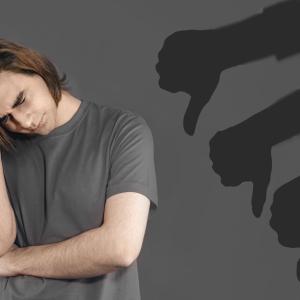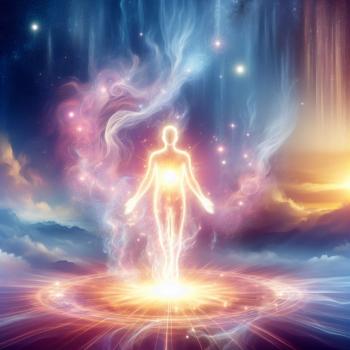In the first two posts of this series I argued that Critical Race Theory (CRT) is 1) not a truth-oriented project and 2) that CRT is inherently and only political. My goal in this series is, ultimately, to warn about CRT as a terrible means to an even worse end. It is not to argue that CRT scholars have nothing interesting to say or that they do not make some valuable points on a few, microscopic social issues. It is to say, however, that the Church already has theological resources that better answer any problems CRT advocates might surface. Moreover, this can be done without creating new injustices and additional divisions.
A final feature of CRT that makes it undesirable for Christians, theists, and even some atheists, is its fundamentally moralistic nature. In other words, CRT is a justice-oriented project but one that has a very different understanding of morality than biblical Christianity. This secular version of justice will have negative consequences for human flourishing.
Feature #3: CRT is Fundamentally Moralistic
Unlike the scientistic materialists of the prior generation who, claiming that moral statements were effectively meaningless, stayed at arms-length from moral issues, critical theorists are fixated on morality. Being social theorists, CRT advocates are obsessed with social norms, interpersonal relations and public policy. However, most moral theories espoused since the days of Aquinas, let alone Luther or Mill, are seen either as antiquated or cruel. Antiquated if they came before the rise of the racial hierarchies which emerged at the dawn of Colonialism, cruel, i.e., racist, if they arose during or after the Colonial era. Both Aquinas’ Medieval Synthesis and Kant’s Enlightenment are unwelcome guests in the Critical Race theorist’s house (to be fair here, Kant was genuinely racist).
Still Critical Race Theory finds itself truly stuck in a quandary, a moral labyrinth from which it cannot escape. Its quasi-religious impulse of liberation, a very Marxist impulse, is to engineer a perfectly harmonious, perfectly just and perfectly democratic society. However, its main proponents reject any notion of a corrupt human will or sinful nature. In fact, they reject the very notion of a human nature at all. Anti-Essentialism is an essential hallmark of the Critical Race Theory, as any identity is a socially constructed one. Works like Angela Harris’ “Race and Essentialism in Feminist Legal Theory” is a veritable ode to this idea of human persons sharing little to nothing in common.
Nevertheless, Critical Race Theory’s idea of public morality can be seen as indirectly descending from Rousseau, who famously stated that “man is born free, but everywhere in chains.” If there is anything fundamental to the human person for the Critical Race theorist, it seems that it is something that is born a clean slate, only later to be acculturated into a cruel system. Taking this cue, it is moral man who must dismantle the immoral system. How the system became immoral, of course, may be problematic for the CRT advocate who does assume that unsocialized man is inherently good.
CRT and The Progressive Vision of Man
In his book, A Conflict of Visions, Thomas Sowell explains this “unconstrained view” of human nature, showing how the vision of man espoused by men like Rousseau, William Godwin, and the Marquis de Condorcet stands diametrically opposed to the views of traditional thinkers like Edmund Burke and Adam Smith. The latter philosophers, along with Locke, understood human beings as “constrained” by a nature or essence from which they could not escape nor ultimately perfect in their own power.
According to Sowell,
“His [Godwin’s] was the unconstrained vision of human nature, in which man was capable of directly feeling other people’s needs as more important than his own, and therefore of consistently acting impartially, even when his own interests or those of his family were involved. This was not meant as an empirical generalization about the way most people currently behaved. It was meant as a statement of the underlying nature of human potential.”
Sowell, A Conflict of Visions. Apple Books.
This vision of man as unconstrained by a nature or essence jibes well with Critical Theory generally and CRT specifically, Far more so than the classical liberal position of Burke, Smith or Locke. Again, for those thinkers, the idea that there was a complete solution to the problem of human nature was not something attainable this side of eternity or without divine help.
At the same time Critical Race theory rejects the project of “Scientism” and the hegemony of the natural sciences in its attempt to “rehumanize” social experiences. No longer can the human person be reduced down to impersonal atoms and unconscious nuclear forces. People are people and, as Godwin pointed out centuries ago, we are capable of feeling their needs. Further, if we can feel, then we can act.
But, having rejected traditional religious views of human nature, critical theorists grope to find a coherent morality apart from a transcendent norm or norming principle. Instead, there is a hope that one can access some underlying human potential to be good and that this potential is potentially unlimited. In short, that we can become (almost) as gods, at least as it pertains to moral goodness:
Man is, in short, “perfectible”—meaning continually improvable rather than capable of actually reaching absolute perfection. “We can come nearer and nearer,” according to Godwin, though one “cannot prescribe limits” to this process. It is sufficient for his purpose that men are “eminently capable of justice and virtue”—not only isolated individuals, but “the whole species.” Efforts must be made to “wake the sleeping virtues of mankind.” Rewarding existing behavior patterns was seen as antithetical to this goal.”
Thomas Sowell. A Conflict of Visions. Apple Books.
It is in this sense that CRT follows in the historical and intellectual lineage of “Progressivism.” Man, in his own powers, is capable of near completion and wholeness. Of course this wholeness and this fulfillment of our moral obligations has to be attained politically, since politics is the only mechanism through which social structures can be changed (aside from war, naturally).
However, without the pre-political to ground morality, morality for the critical race theorist just becomes the act of moralizing itself— an act which is little more than a rhetorical tool for attaining that which the will most strongly desires. Kimberle Crenshaw, one of the founding mothers of Critical Race Theory, says as much when speaking about the malady of domestic violence against black women. In her essay Crenshaw makes it clear that in order to solve the issue of the marginalization of black women, what is needed is one of two things (or both): material resources and/or “rhetorical” ones:
The problem is not simply that [white] women who dominate the antiviolence movement are different from women of color but that they frequently have power to determine, either through material or rhetorical resources, whether the intersectional differences of women of color will be incorporated at all into the basic formulation of policy.
Crenshaw, “Mapping the Margins: Intersectionality, Identity Politics, and Violence against Women of Color” in Stanford Law Review, Jul 1991. [emphasis added].
Thus, critical theorists “virtue signal” because of its psychological effectiveness on their opponents, not because they actually believe there are objective virtues that are worthy of exemplifying, regardless of whether they produce some social or material benefit. Virtue signaling is a “rhetorical resource” aimed at producing political change. It is purely instrumental. Of course, this is not to say that virtue signaling cannot be aimed at something that really is objectively right or wrong. Crenshaw obviously does this very thing by highlighting the state of domestic violence against black women.
Or does she?

Conclusion: CRT Cannot Fund True Morality
Critical Race Theory is not a moral project, but it is a moralizing one. Such moralizing uses something real, our moral sense or conscience, to get what it wants. Thus, everything about Critical Race Theory is couched in moral terms, not because these moral terms actual refer to some objective moral norm or nature, but simply because they have psychological effects on people. This is how on a CRT view morality and politics is essentially the same thing.
This is the scariest aspect, for example, of the new California Social Justice Standards curriculum, as it transforms children into little moralists, willing to fault find in others and report any identified faults in others to the controlling authorities. While the nuns of yesteryear’s Catholic schools used to scold children for the sin of “tattle-taling,” today’s CRT-inspired teachers encourage this sinful behavior, exhorting children to perform the act once known as the sin of detraction.
Critical Race Theory plays off of the worst of human nature, albeit somewhat unwittingly since it denies that human’s have a nature. Nevertheless, in reality, the influence of Critical Race Theory in our schools will exaggerate and even encourage various vices already innate in our children’s wills: envy, detraction, calumny, greed, and pride. Yes, very much pride.
1 Why do the nations conspire,
and the peoples plot in vain?
2 The kings of the earth set themselves,
and the rulers take counsel together,
against the Lord and his anointed, saying,
3 “Let us burst their bonds asunder,
and cast their cords from us.”Psalm 2
In sum Critical Race Theory will ultimately deter human flourishing. As a non-truth-oriented program that is purely political and moralistic, Critical Race Theory is nothing more than the latest attempt of man to relieve himself from the moral authority of God and burst his bonds and cords so as to be free of His Lordship. CRT does not foster holiness, it breeds rebellion.

















